Definition
Heart rhythm disorder is also called an arrhythmia. A disorder in heart rhythm is characterized by abnormal variation in the normal heartbeat. Usually, the abnormalities occur in heart rate, regularity of beats, and sinoatrial node (SA) where electrical impulses originate are collectively causing arrhythmia.
Pathophysiology
Each heartbeat begins when the electrical impulse from the sinoatrial (SA) node. It is the node where most firing cells have resided. It is located in the right atrium and provides a major control over the heart function. The electrical impulse from the SA node travels through the conducting pathway of the heart and reach to the atrioventricular (AV) node.
The AV node provides an electrical impulse origin for the conducting pathways from atria to the ventricles. AV node conducts electrical impulses intermittently from the atria to the ventricles to initiate contraction of atria first to fill the blood in the ventricles. The delay between each impulse ensures proper timings so that the lower chambers of the heart (ventricles) have time to fill completely before they contract.
Suppression of automaticity of the sinoatrial (SA) node can result in sinus node dysfunction and in sick sinus syndrome (SSS), which is still the most common indication for permanent pacemaker implantation. Enhanced atomicity of SA node can result in multiple arrhythmias both arterial and ventricular.
Types of Arrhythmia
- Atrial Fibrillation – The irregular flow of electrical impulse generated from atria throughout the atria is characterised as atrial fibrillation.
- Ventricular Fibrillation – irregular contraction of ventricles of the heart creates a condition called ventricular fibrillation.
- Bradycardia: It is characterized by slow heart rate.
- Tachycardia: It is characterized by fast heart rate.
- Conduction Disorder – During such disorder the heartbeat is not normal.
- Premature Contraction – A condition where the heart beats earlier than usual.
- Ventricular Heart Rhythm Disorders – Originates in the ventricles, usually requiring serious and urgent medical care.
- Supraventricular Heart Rhythm Disorders – Basically a tachycardia that is originating in the atria or AV node.
- Ventricular Fibrillation (V-Fib) – Extremely disordered electrical signals make the ventricles quiver or fibrillate instead of contracting correctly
Causes
- The rapid firing of electrical impulse from the SA node cells is disrupted due to damage to the tissue of SA nodes
- In certain conditions almost entire heart tissues can start an impulse that can generate a heartbeat. This activity can interrupt the normal order of the heart’s pumping activity
Some conditions that cause arrhythmia are as follows:
- Infection or fever
- Physical or emotional stress
- Certain arrhythmias can genetically arrive in cases of Wolff-Parkinson-White (WPW) syndrome
- Cardiomyopathy
- An abnormality in blood chemical levels
Risk factors of arrhythmia
Certain heart disease can stand as a risk for developing an arrhythmia.
- Coronary artery disease
- Heart valve problems
- Heart failure or disorders with heart conduction
- High blood pressure
Other than heart diseases there are also some conditions can be a risk factor:
- Anemia
- Thyroid disease
- Drugs and other stimulants, such as caffeine, tobacco, alcohol, cocaine, and amphetamines
Epidemiology
- It affects more than 2.3 million individuals in the USA, and has been further increasing with the aging of society. Many people may experience an irregular heartbeat or heart palpitation, although this is often not a serious or even a chronic condition.
- The prevalence of AF increases with age, being approximately 1% in the general population and increasing from 0.1% among adults younger than 55 years to 9% among octogenarians in the USA. The prevalence of AF is estimated to be 0.7% in South Korea (1.2% in men and 0.4% in women; mean age: 54.6±10.8 years)
Symptoms
Arrhythmia can be silent and doesn’t cause symptoms. Sometimes your doctor might find the arrhythmia before you do while during the physical exam by checking your pulse rate or through an electrocardiogram (ECG). Some of the symptoms may include:
- Shortness of breath
- Fainting
- Dizziness
- Chest pain
- Sweating
- Light-headedness
- In extreme cases, collapse or sudden cardiac arrest
- Fatigue
- Rapid heartbeat or pounding
- Palpitations (feeling of skipped heartbeats or feeling that your heart is running away)
Complications of arrhythmia
Arrhythmia can cause life-threatening complications such as follows:
Heart failure: The long-term bradycardia and tachycardia can result in n a weakened heart that cannot pump enough blood to the body and its organs.
Stroke: When the heart chamber fibrillates, it means the heart is not pumping blood effectively. This leads to the collection of blood in pools inside the heart chamber. This pool may form clots. If the blood clot leaves the heart and enters into the blood circulatory system and travel throughout the body and it sticks to the narrowed or tapered artery in the brain and thus it causes stroke and it ends with damage.
Diagnosis and test
Tests used to diagnose an arrhythmia or determine its cause include:
- Electrocardiogram
- Holter monitor
- Event monitor
- Stress test
- Echocardiogram
- Cardiac catheterization
- Electrophysiology study (EPS)
- Head-up tilt table test
Treatment and medications
Many drugs are available for reducing the occurrence of arrhythmias or managing symptoms. These include drugs to:
- Slow the heartbeat (beta blockers and calcium channel blockers)
- Keep the heart rhythm normal (antiarrhythmic drugs)
- Help prevent blood clots (blood thinners, such as warfarin)
Implantable Devices
Some people with arrhythmias may need an implantable device to help the heart work properly.
A pacemaker is a small device implanted near the heart. It is usually used to treat bradycardia. The pacemaker monitors the electrical activity of the heart and delivers a small electrical pulse when the heart beats too slowly. For more information, see the Pacemaker Implantation Patient Guide.
Chest with a Pacemaker
An implantable cardioverter-defibrillator (ICD) is similar to a pacemaker but can deliver an electrical shock to restore normal heart rhythms when needed. An ICD may be necessary for patients with more dangerous arrhythmias that can stop the heartbeat, such as ventricular fibrillation. For more information, see the ICD Patient Guide.
Ablation
Some arrhythmias may need to be treated with a minimally invasive technique called radio-frequency ablation. This procedure is performed using a catheter threaded through a blood vessel to the heart. An electrode is inserted through the catheter and used to heat and destroy a small area of tissue. This can block abnormal electrical signaling pathways in the heart.
Prevention of arrhythmia
To prevent heart arrhythmia, it’s important to live a heart-healthy lifestyle to reduce your risk of heart disease. A heart-healthy lifestyle may include:
- Keeping a healthy weight
- Eating a heart-healthy diet
- Limiting or avoiding caffeine and alcohol
- Increasing your physical activity
- Avoiding smoking
- Reducing stress, as intense stress and anger can cause heart rhythm problems
- Using over-the-counter medications with caution, as some cold and cough medications contain stimulants that may trigger a rapid heartbeat
 Diseases Treatments Dictionary This is complete solution to read all diseases treatments Which covers Prevention, Causes, Symptoms, Medical Terms, Drugs, Prescription, Natural Remedies with cures and Treatments. Most of the common diseases were listed in names, split with categories.
Diseases Treatments Dictionary This is complete solution to read all diseases treatments Which covers Prevention, Causes, Symptoms, Medical Terms, Drugs, Prescription, Natural Remedies with cures and Treatments. Most of the common diseases were listed in names, split with categories.
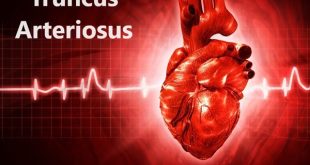
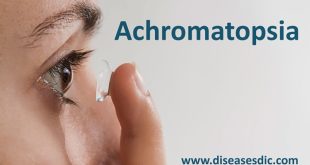
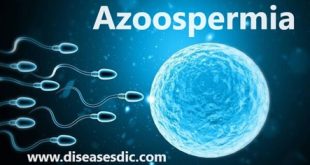
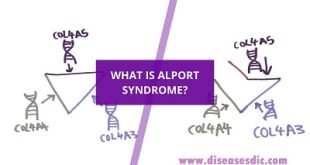
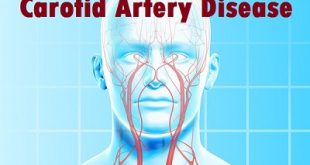
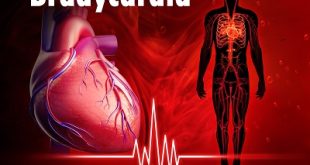
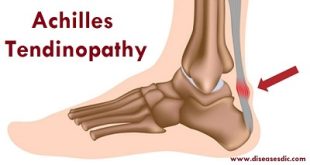

this lesson is more than necessary it teaches me to regain my about to lost life
I have learnt a lot from this topic, and i will love to show this to as many who are suffering from this sickness
what drug of choice for bp of180/120
Please consult with doctor to get efficient and relevant drugs.
Circulatory system ki complete disease send kary.
Sure we will provide as soon as possible in our app. Stay tuned.
I have problems with my heart and have irregular beats, furthermore I have palpitations and feel short of breath, I also recently been eexperiencing numbness around my left thumb and index finger which has gradually shooting up my left arm and it causes some discomfort, I am not sure as my wife keeps telling me I am paranoid and over reacting, please can you give me some advice on my symptoms, it would be very much appreciated if you could give me some advice. Thank you and God bless.
Please consult a doctor .
thenks nimefirahi mimi sijui kama watanzania wenzangu wanao soma this depatriment kama wameona hii application blesed who the one creat this application
Good Heath And good luck
Thanks you very much for this wonderful topic I learned a lot from it and from today onwards I will manage this condition whenever I come across throughout my nursing practice
I have heart problem: aortic valve is wide due to arrhythmic since 2009
please consult a doctor to get a cure for this problem.
please someone with arrhythmia can you give he or she hydrocortism injection
and if yes what is the implications
please consult a doctor to know about the implications.
i have irregular heart beat which i believe to be AF i have tried ECG plenty times and it shows normal heart beat usually because before I get to the hospital the irregularity stops. i have been on vasoprin drug now for close to 2yrs and only take the drug when I feel palpitations is this treatment sufficient. pls I need answer. I was advise by a nurse to use digoxin 0.5mg for 5days but am afraid because of the research I did o the drug. I need help pls.
Please consult a cardiologist.
great fully
excellent information very informative
This is a real online Doctor. Very useful information. Thanks a lot.
I was diagonised with sinus tachycardia, and I have been taking propranol, but no pain in chest but fever and cough what can I do?
Please consult a doctor for the proper prescription of drugs.
i wanted to know if heart palpitation can be treated or it will stay throughout the whole life ??
Unless you have an underlying heart condition, you probably won’t need any treatment. Just do your best to avoid the triggers that cause your palpitations. Stay away from stimulants like caffeine, nicotine, and energy drinks. And try meditation, yoga, or deep breathing to reduce your stress or anxiety.
I’m impressed by the write-up. It’s very educating and interesting. It has allayed my fears on my heart palpitations.
However, I still need to see my Doctor after my ECG examination.
Thanks.
My son condetion is heart rayomatic deseas he told 10 yrs medication
Please consult a doctor ASAP.